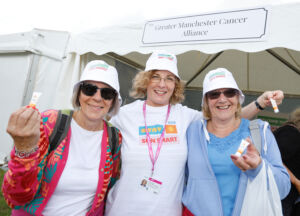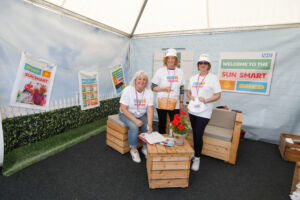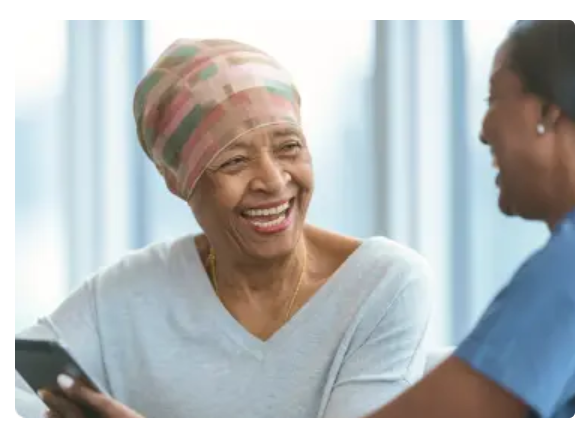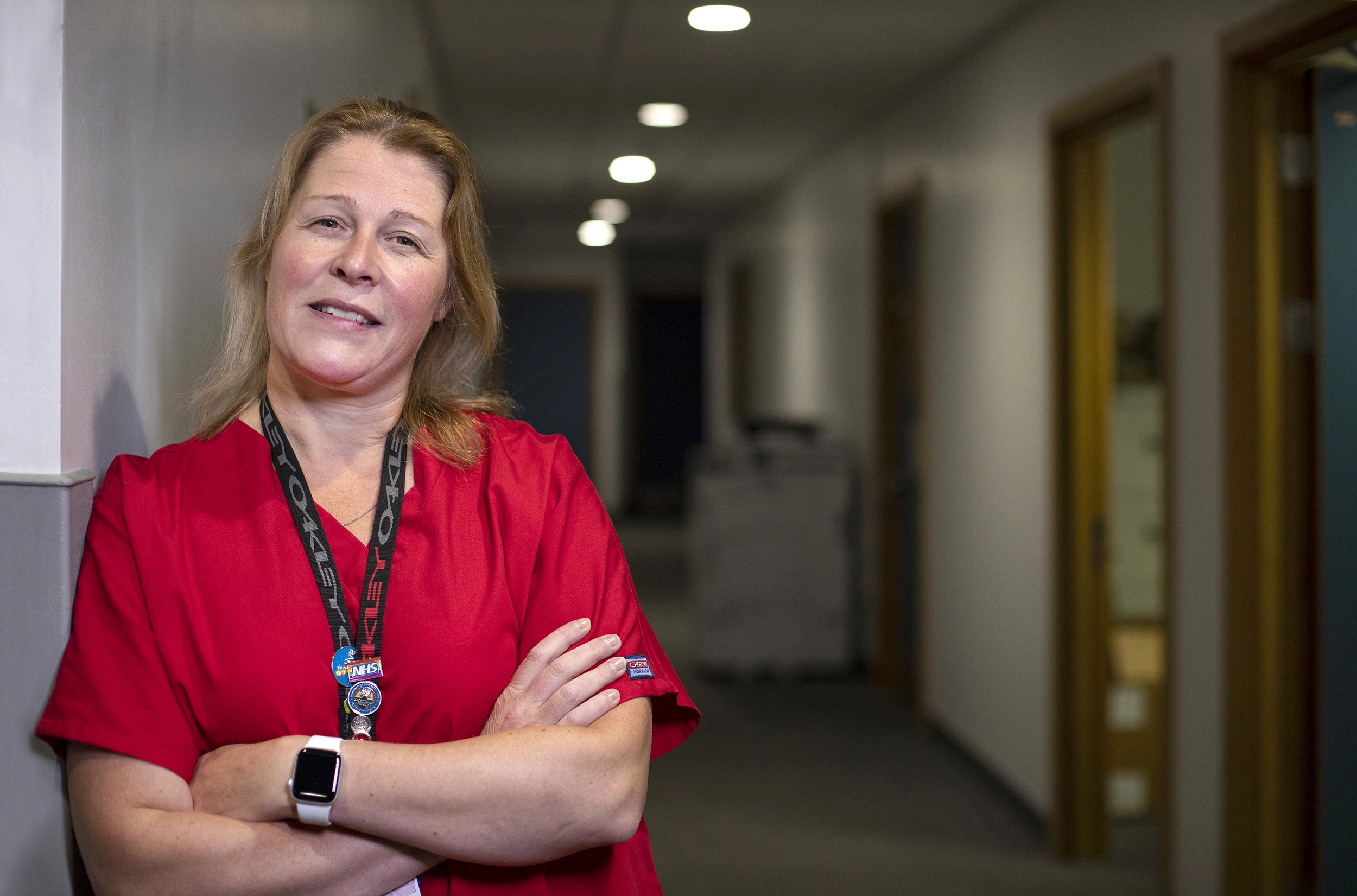
NHS staff from Greater Manchester Cancer Alliance spoke to visitors about how to stay safe in the sun at Tatton Flower Show last week.
Using a sun cream of SPF30 or above is one of the best things that people can do to reduce their chances of getting skin cancer.
But it’s important to reapply it frequently throughout the day – even with products labelled ‘once a day’.
Linda Eastwood (left) and Margaret Fryer (right) Tatton Flower show visitors with Sheila Russell, Advanced Nurse Practitioner.

Alison Foxley, Sheila Russell and Kate Howlen from the Greater Manchester Cancer Alliance stand at Tatton Flower Show.
NHS staff gave out sun cream, hats and spoke to visitors about how to stay safe in the sun at Tatton. Visitors to the stand were also invited to guess how often sun cream needs to be reapplied. Two thirds of those who took part correctly knew they needed to reapply sun cream every two hours. 14% thought they only needed to reapply sun cream twice a day and 20% thought they needed to reapply it every 20 minutes.
The sun in the UK is strong enough to cause skin damage between March and October. The NHS advice is to spend time in the shade between 11am and 3pm, and to take extra care with babies and small children, or if your skin is very pale.
Dr John Newsham, consultant dermatologist in Greater Manchester, said: “We wanted to talk to the public visiting Tatton about how to stay safe in the sun while enjoying outdoor activities such as gardening.
“While most people now know the importance of wearing a high sun cream of SPF 30 or above, not as many people realise the importance of regularly reapplying their sun cream. Our team has been raising awareness about this was well as giving out sun cream, hats and sharing advice on how to protect yourself from skin cancer by covering up with clothing and spending time in the shade between 11am and 3pm.”
The main cause of skin cancer is damage from UV rays, from being out in the sun or using sunbeds.
The NHS recommends that you check your skin regularly, keeping an eye out for moles that:
- Change shape, or look uneven
- Change colour, get darker or are made up of more than two colours
- Start itching, crusting, flaking or bleeding
- Get larger
If you notice any changes or are worried, your GP wants to see you.
For more information visit: www.sun-smart.co.uk.




